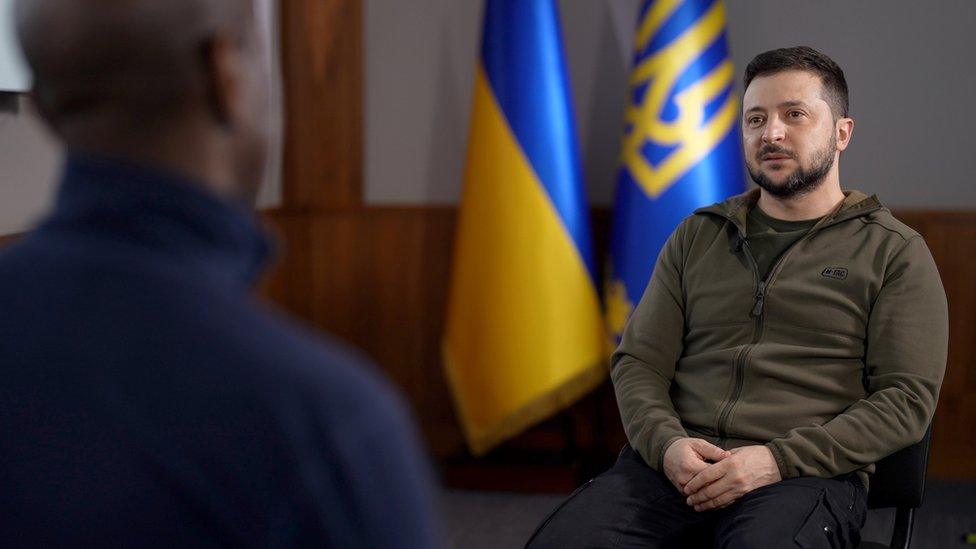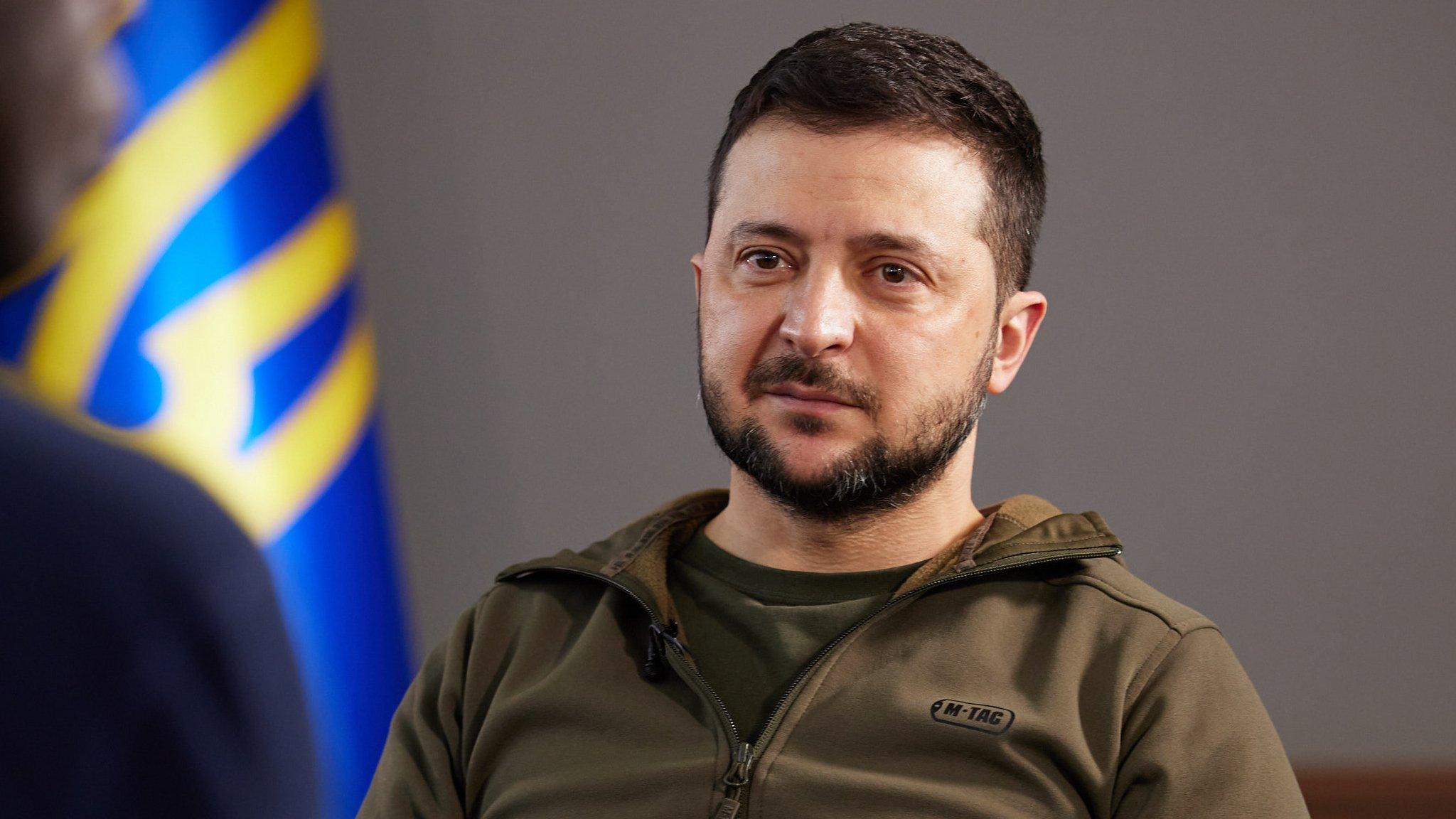Behind the scenes in Zelensky's modern HQ
- Published

The soldiers at the checkpoint scrutinised our passports, then waved us on. We were inside the grounds of the building that was being used as the headquarters of the resistance against Russia's invasion.
Barbed wire, mines and machine gun mounts ring the building. Heavily armed soldiers were everywhere - the person I was about to meet is a marked man.
The Kremlin would love to see Volodymyr Zelensky dead and his government replaced with a puppet regime installed by Moscow. But over the 50 days of this war, Ukrainian resistance has stunned the world.
We passed our equipment through two sets of metal detectors and were ushered inside. Then it was down a series of long corridors, with sandbags piled up every few yards. A little hole was left in the pile near the top, through which the muzzle of an assault rifle might fit.
An aide to the President led us to a door with a brass plate on it: the words read The Situation Room, in Ukrainian. Inside, the room looks modern, with giant plasma screens covering the walls and trendy office chairs on wheels sporting ergonomic backrests.
But there was a problem. Interviewing people sitting on chairs with wheels can be tricky. Lost in their responses to questions, they tend to shift from side to side on the wheels.
So we asked the president's aide for chairs with no wheels. "Umm," he says, "I'll have a look."
He left the Situation Room and returned with two rather old-fashioned-looking chairs, all brown wood with patterned seats. "That'll do the trick," I say. But I could see the president's chief of staff's lip curl.
"No, that won't do," he said. "The chair looks too old-fashioned in this room of modern computers and plasma screens. We're trying to project a modern image here." And with that, two more modern-looking chairs were produced - with no wheels.
The discussion over the chairs highlighted so much for me about modern Ukraine. Since the end of the Cold War, a vibrant, young population has looked West for its influences. Cheap Ryanair flights to Western Europe opened up possibilities. This administration wanted us to know that they were informal, different, ready to talk.
I then heard several footsteps coming down the hall. Two soldiers entered the room and behind them was the president.
WATCH: Zelensky says European countries still buying Russian oil are dealing in blood money
As we greet, an aide handed him a phone. On it was a text message, from France. "Is it Emmanuel?" he asked the aide? "Yes," came the reply.
"We have a connection and he calls me all the time," the president tells me. "Do you mind if I give him a quick call?"
"Absolutely," I say, surprised that he asked me whether or not he should call the president of France back straightaway or try him later.
But that's part of the measure of Volodymyr Zelensky, an affability and charm that comes so naturally.
However, there were times over the next hour when I could tell he was angry and upset: when he recalled visiting the town of Bucha, about 25km (16 miles) north-west of central Kyiv, that Russian forces had occupied for several weeks. After they pulled out, a mass grave was discovered near a church and there were bodies lying in the street.
I asked him if he believed Vladimir Putin is a war criminal. His response was that anyone connected with the Russian military, and their civilian masters, were war criminals.
"Given everything that's happened, would you be able to sit around a negotiating table with with these people and talk peace?" I asked.
"The window of opportunity is receding," he replied, pointing to the atrocities in Bucha and Borodyanka as the main driver of that thought.
Mr Zelensky is, of course, a former comedian and actor. But during the hour I was with him, I saw a man mentally exhausted and in deep pain about the treatment of his people. A man who has been compared to Churchill and who many will remember for his leadership through the dark days of war.

War in Ukraine: More coverage
ANALYSIS: What does Putin want?
ON THE GROUND: Collecting the dead in Bucha
READ MORE: Full coverage of the crisis, external

Related topics
- Published14 April 2022
